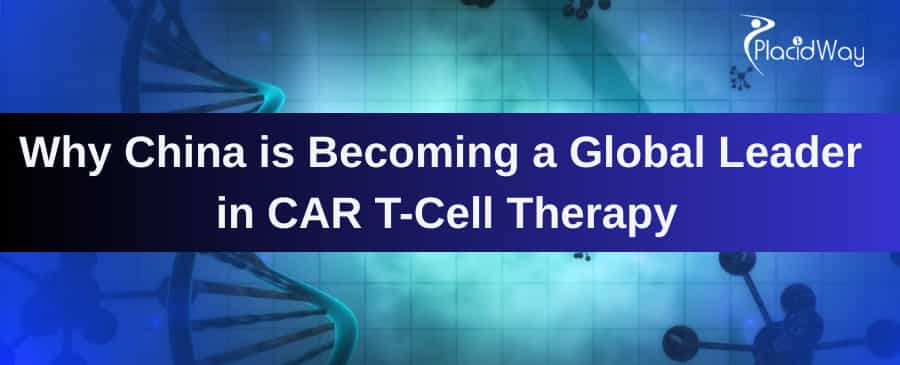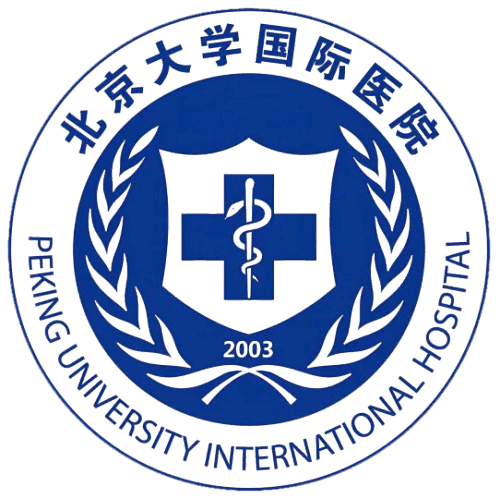
China is rapidly establishing itself as a global frontrunner in Chimeric Antigen Receptor (CAR) T-cell therapy, a revolutionary cancer treatment that genetically modifies a patient’s T-cells to fight cancer more effectively. With unmatched clinical trial activity, pioneering research, and increasing accessibility, China has outpaced many Western countries in this field.Driven by government support, strong collaborations with biotech companies, and cost-effective treatment options, China is emerging as a key player in the global fight against cancer. This article explores the factors behind China's leadership in CAR T-cell therapy, the latest breakthroughs in clinical trials, and how international patients can benefit from these advancements.
Key Insights at a Glance
- China leads in CAR T-cell trials, conducting over 50% of the world's studies.
- Six CAR T-cell therapies approved in China since 2021, advancing treatment options.
- Innovative targets like Claudin18.2 are explored for solid tumor treatment.
- Fast-track regulatory processes speed up CAR T-cell approvals and accessibility.
- International patients can access cost-effective CAR T-cell therapy in China.
What Makes China a Global Leader in CAR T-Cell Therapy?
Several factors set China apart in the global CAR T-cell therapy race. From rapid clinical trial development to unique regulatory strategies, China is at the forefront of this medical revolution.
Unmatched Clinical Trial Activity
China dominates the global CAR T-cell therapy landscape, with over 55% of the world’s CAR T-cell clinical trials conducted in the country. Compared to the United States and Europe, where clinical trial approvals can take years, China’s regulatory system accelerates research and approvals, ensuring more patients benefit from cutting-edge treatments sooner.
Expanding Beyond CD19 – Novel Targets and Applications
While CD19-targeted CAR T-cell therapies have been highly successful for blood cancers, China is going a step further by exploring new targets such as:
- BCMA (B-cell maturation antigen): Focused on multiple myeloma treatment.
- Claudin18.2: A novel target for gastric and pancreatic cancers.
- GPRC5D and CD7: Emerging targets for various blood cancers.
These advancements in solid tumor treatment bring new hope to patients who were previously not eligible for CAR T-cell therapy.
Government Support and Streamlined Regulations
China’s dual-track regulatory system, introduced in 2017, helps expedite CAR T-cell research, clinical trials, and approvals. This system allows companies to launch clinical trials faster and gain approvals in record time, compared to Western countries where regulatory hurdles slow progress.
Collaboration Between Industry Leaders
China has forged strong partnerships between domestic biotech firms and international pharmaceutical companies. These collaborations lead to cutting-edge innovations, faster approvals, and global accessibility for CAR T-cell therapy.
Did You Know?
- China is the only country with over 600 active CAR T-cell clinical trials, surpassing the US and Europe combined.
Recent Breakthroughs in China’s CAR T-Cell Clinical Trials
China's clinical trials have yielded remarkable success in expanding CAR T-cell therapy applications. Here are some of the latest breakthroughs:
CAR T-Cell Therapy for Solid Tumors
Traditionally, CAR T-cell therapy has been more successful for blood cancers like leukemia and lymphoma. However, China has made significant progress in treating solid tumors, including:
- Claudin18.2-targeting CAR T-cell therapy for advanced gastric and pancreatic cancer, showing high response rates.
- Glioblastoma clinical trials, where CAR T-cell therapy is being tested against brain tumors.
New FDA-Equivalent Approvals in China
Since 2021, six CAR T-cell products have been approved for clinical use in China, including:
- Yescarta (Axicabtagene Ciloleucel) – Used for lymphoma treatment.
- Fucaso and CNCT19 – Novel therapies for leukemia.
- Carvykti (Ciltacabtagene Autoleucel) – Targeting multiple myeloma.
These approvals position China as a global powerhouse in CAR T-cell therapy, offering patients more treatment options than ever before.
Pediatric Cancer Breakthroughs
Chinese researchers have also made progress in CAR T-cell therapy for children, especially in relapsed or refractory B-cell acute lymphoblastic leukemia (B-ALL). Studies have shown remission rates exceeding 90%, providing hope for young patients who have exhausted other treatments.
How International Patients Can Access CAR T-Cell Therapy in China
China’s affordable and advanced CAR T-cell treatments attract thousands of international patients seeking life-saving care. Here’s how international patients can benefit:
Cost-Effective Treatment Options
- CAR T-cell therapy in the US costs between $400,000 to $500,000.
- In China, the same treatment is 50% more affordable, making it accessible to more patients.
Medical Tourism and Treatment Accessibility
China has developed a strong medical tourism infrastructure, helping international patients navigate visas, hospital admissions, and treatment plans with ease. Many leading hospitals offer language support, making the process smoother for international visitors.
Faster Treatment Process
Unlike Western countries where waiting lists for CAR T-cell therapy are long, China’s streamlined regulatory system allows international patients to begin treatment sooner.
Did you know?
- China's first CAR T-cell approval in 2021 paved the way for multiple approvals within just three years.
Cost Comparison of CAR T-Cell Therapy: China vs. Other Countries
One of the key reasons China has become a top destination for CAR T-cell therapy is its affordability. Compared to Western countries where treatment costs can exceed $500,000, China offers equally advanced therapies at a significantly lower price.
The table below provides a detailed cost comparison:
| Treatment Component | China ($USD) | United States ($USD) | Europe ($USD) | Notes |
|---|---|---|---|---|
| CAR T-cell Therapy (Total Cost) | $150,000 – $250,000 | $400,000 – $500,000+ | $350,000 – $450,000 | Costs vary based on hospital, therapy type, and patient condition. |
| Hospitalization (7–14 days) | $10,000 – $25,000 | $50,000 – $100,000 | $40,000 – $90,000 | Includes inpatient care, monitoring, and management of side effects. |
| Pre-Treatment Tests & Screening | $5,000 – $15,000 | $20,000 – $50,000 | $15,000 – $40,000 | Covers blood work, imaging, and pre-therapy assessments. |
| Apheresis (Cell Collection Process) | $3,000 – $8,000 | $30,000 – $50,000 | $25,000 – $45,000 | Involves extracting and preparing T-cells for modification. |
| CAR T-Cell Manufacturing | $50,000 – $100,000 | $200,000 – $300,000 | $180,000 – $250,000 | Includes genetic engineering and expansion of T-cells. |
| Post-Treatment Care & Follow-Up | $5,000 – $20,000 | $50,000 – $100,000 | $40,000 – $80,000 | Covers monitoring for side effects like CRS and neurotoxicity. |
| Total Estimated Cost | $150,000 – $250,000 | $400,000 – $700,000+ | $350,000 – $600,000 | Chinese hospitals offer top-tier treatment at lower prices. |
Benefits and Risks of CAR T-Cell Therapy
Benefits
- High success rates: Over 80% remission rates for some blood cancers.
- Durable responses: Many patients experience long-term cancer remission.
- Minimal hospital stay: Unlike chemotherapy, CAR T-cell therapy often requires shorter hospitalization.
Risks
- Cytokine Release Syndrome (CRS): A temporary immune response causing fever and low blood pressure.
- Neurological side effects: Some patients experience confusion or seizures, though these effects are typically reversible.
- Risk of relapse: Some cancers may return despite initial success, requiring further treatment.
Patient Remarks on CAR T-Cell Therapy in China
James, 58, USA – Lymphoma Survivor: "I couldn’t afford CAR T therapy in the US, but China made it possible. After treatment, my cancer is in remission!"
Maria, 46, Spain – Multiple Myeloma Patient: "The hospital staff was amazing, and the cost was half of what I would pay in Europe. So grateful!"
Ahmed, 52, UAE – Leukemia Patient: "Within weeks, I was treated with the latest CAR T therapy. The process was smooth, and the results are life-changing."
Li Wei, 34, China – Gastric Cancer Patient: "I was part of a clinical trial for solid tumors, and my condition has improved drastically."
Sophia, 12, Canada – B-Cell Leukemia Survivor: "My daughter had no other options left, but CAR T therapy in China saved her life!"
FAQs
What is CAR T-cell therapy?
CAR T-cell therapy is a personalized immunotherapy treatment where a patient’s T-cells are modified to fight cancer more effectively. The modified cells are then infused back into the patient’s body to target and destroy cancer cells.
What types of cancer can CAR T-cell therapy treat?
CAR T-cell therapy is most effective for blood cancers, such as leukemia, lymphoma, and multiple myeloma. New research is exploring its use in solid tumors like lung, gastric, and pancreatic cancers.
How does CAR T-cell therapy differ from chemotherapy?
Unlike chemotherapy, which kills both healthy and cancerous cells, CAR T-cell therapy specifically targets cancer cells, reducing side effects and offering longer-lasting remission.
Can international patients get CAR T-cell therapy in China?
Yes! Many top Chinese hospitals accept international patients and offer affordable treatment plans, fast approvals, and medical tourism assistance for easy access.
How long does CAR T-cell treatment take?
The entire process, from cell collection to infusion, usually takes 2 to 4 weeks. Most patients stay in the hospital for 7 to 14 days for monitoring.
Is CAR T-cell therapy covered by insurance?
While insurance coverage varies by country, some international health plans may reimburse part or all of the treatment cost. Patients should check with their insurance provider.
What is the success rate of CAR T-cell therapy?
Success rates depend on the type of cancer and the patient’s condition, but studies show remission rates between 60% to 90%, making it one of the most effective cancer treatments available.
Why Choose PlacidWay for CAR-T Therapy in China?
- Trusted Global Medical Tourism Platform – PlacidWay connects international patients with top-quality healthcare providers in China.
- Personalized Guidance – Dedicated patient coordinators help you navigate the entire treatment process.
- Cost Transparency – Get clear information on treatment pricing without hidden fees.
- Accredited Medical Facilities – Partnering with well-established institutions that specialize in CAR-T therapy.
- Multi-Language Assistance – Overcoming language barriers with professional translation and interpretation services.
- Efficient Treatment Coordination – Faster appointment scheduling and streamlined communication with specialists.
- Post-Treatment Follow-Up – Continued support and medical consultation after returning home.
Take the Next Step with CAR T-Cell Therapy in China
If you are considering CAR T-cell therapy and want to explore the latest treatment options in China, PlacidWay is here to help. Our team can connect you with leading hospitals, top specialists, and ongoing clinical trials to ensure you receive the best care.Contact us today to take the next step in your cancer treatment journey!


.png)


Share this listing